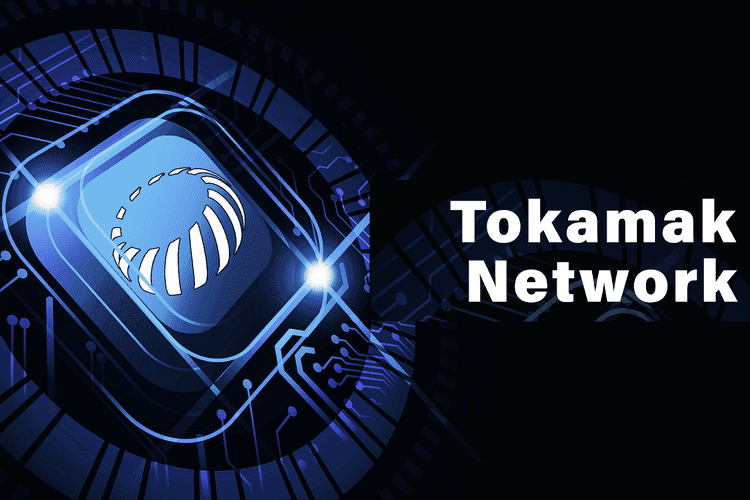Breaking Down Tokamak Network, an Ethereum-based On-Demand Layer 2 Platform

The Tokamak Network is providing an easy to build application on Ethereum through its on-demand Layer 2 platform. The platform aims to become an aggregator that developers can use to create and operate new decentralised applications (DApps) off the main chain.
Tokamak Network is the first Turing Complete Plasma platform on Ethereum which enables it to create multiple chains with the same properties as the main chain. As such, each DApp can run on its own chain whilst remaining connected to Ethereum’s main chain and without losing any functionality.
Why Ethereum’s scalability is important
The Ethereum blockchain is built as one of the most robust and sound decentralised networks, attributes that have made it very popular. Consequently, numerous products and services have been and continue to be built on Ethereum due to its ever growing versatility and flexibility.
Unsurprisingly, entirely new economic sectors and industries such as DeFi, virtual gambling for crypto, and decentralised autonomous organisations have been created on the Ethereum blockchain.
As a result of this influx in activity, the Ethereum blockchain has been overwhelmed. Subsequently gas fees have skyrocketed while transactions take too long to get confirmed with numerous others backlogged. The toughest bit? The network is being slowed down by the Ethereum community activity only. Given that this is a niche sector with only about one hundred thousand users and less than two million daily transactions, it is hard to fathom what would happen to the network if it goes mainstream with millions of users globally making hundreds of millions of transactions per day.
Evidently, Ethereum has a lot of ground to cover for it to survive and thrive in the mainstream market.
The blockchain community is constantly championing for the mass adoption of decentralised networks like Ethereum. However, these technologies are still in their infancy and need to develop much further to allow them to serve the mass market effectively. Simply put, they need solutions for scalability.
The Blockchain trilemma
The current limitation of the Ethereum network is not a bug but rather is a feature. Moreover, the inability to increase these TPS volumes is not due to lack of trying from the Ethereum developer community. Rather, it is the product of an inherent flaw of decentralised networks referred to as the blockchain trilemma.
The decentralisation, security, and scalability properties of decentralised networks are always in conflict such that altering one of the attributes adversely affects the other two. This makes it difficult to enhance scalability since it would compromise the security and decentralisation of the Ethereum network. This situation has left the network in limbo and has put the likelihood of mass adoption in jeopardy.
The Ethereum community has come up with various proposals and workarounds that could improve the blockchain’s scalability without necessarily touching its core infrastructure.
Tokamak Network is the first Turing complete plasma protocol with the requisite features and functions for Ethereum’s scalability.
The Tokamak Network aggregator solution
Having successfully created a fully functional plasma protocol, the Tokamak Network is aiming to serve as a platform on which DApps can be created easily. This will be achieved through the on-demand Tokamak Network Layer 2 solution that interested organisations can customise according to their needs. The recently unveiled ecosystem will act as a bridge between humans and decentralised applications by enabling the creation of these decentralised applications in a trustless and easy way.
This new revelation by Tokamak Network is a great value proposition for a sector that has perennially struggled with making blockchain solutions more accessible to mainstream institutions. Corporations seeking an entry into the crypto space have been forced to pay huge transaction and development fees to access these already existing public chains.
Most importantly, the Tokamak Network is building a robust community of developers, blockchain experts, and associated institutions among other participants. This community will play an important role by providing feedback, support services and cooperation on development to help accelerate the creation of DApps. The community will also enrich collaborations between various players in the ecosystem to improve the network’s scalability through novel ideas and solutions.
Tokamak Network’s sees collaboration, rather than competitions among layer 2 players as the best approach to develop Ethereum scaling solutions. Corporations seeking to adopt blockchain technology will greatly benefit by cooperating with like-minded institutions and developers. They can substantially reduce the time, and costs involved in developing disparate solutions. By taking an integrated approach, such institutions can collaborate their efforts and resources to create customised solutions on top of the Tokamak protocol.
Conclusion
Finally, the blockchain community appears to have found a solution for its longstanding scalability issue. The first Turing complete plasma protocol, the Tokamak Network, solves this problem by enabling the creation of multiple chains that operate alongside the Ethereum main chain whilst offering similar functionalities. This will help to significantly lower on-chain activity as DApps can function fully on their own plasma chains.
Tokamak Network is building an ecosystem around their platform to help develop new solutions that mainstream corporations can easily plug into their operations to benefit from blockchain functionalities. This is expected to accelerate development within the space and enhance its mainstream adoption.